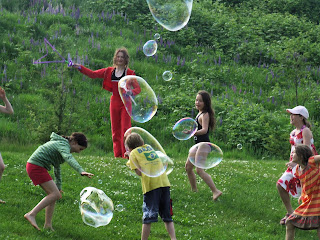1: Sounder
I've been in skills development at a secondary school in Vancouver. Some of the students are working on a grade 9 essay. "How do I write an opening sentence?" What does "Introduce your thesis" mean? "How do I do an introduction? " "What is a summary?" They ask me how to start and how to spell certain words. "Just get your ideas out, get notes and even point form. " I explain. This is the process of writing. The students had to talk about the novel and the film and the differences between the two. "What are some differences with the film?" and "Why do you think the director did this?" I ask. "It made the dad more interesting?" she tells me. "Do you think that the writer had anything to do with the film's screenplay?" (this I explained is an adaptation for a film) "No" she tells me, as she feels that the film is too different from the book. I realized in that past few days here, how important it is to give students this one on one help with assignments such as these. I want them to be in the moment, thinking of process-ideas- and not hung up on writing their introductions.
2. The photograph
Another assignment was writing memoirs and how to get ideas for writing. One student was having trouble starting as well. He had already done the first writing prompt excercises but now was on the photograph-What first comes to mind? Is there a picture you wish you had not been in? Is there a photo of you that you treasure? Is there one that taught you something? Then, something popped out of him suddenly: "There's this guy, sortave a godson-like a son, brother, my sister introduced him and he was part of our family, and he died" There's an idea that you could expand on! I say. Do you have a photo of him? I tell him the story of this quote I heard once: "Only the dead inhabit photographs...We the living are the ghosts." (Jeffrey Eudinedes) I explain that sometimes, when people die and we are showing someone a photo of them we say things like: "This is grandpa" But if they were alive we usually say here's a photo of Jane, or Helen etc. The photo becomes an embodiment of the deceased person. When I see myself in a picture, or someone else does, its not really real-but more surreal and well....ghost-like.
He tells me some things and I tell him to write it all down. He does. I ask him to look at this picture and describe it to me. "How does he look? When was picture taken? Does this man look happy or sad? I ask about how he feels when he sees this picture: "What does this picture say to you?" He has told me how this family member was only 22. I ask him about if he ever wonders what this man would be doing, had he not died. "Do you wonder about this?" Get anything you think you feel on paper. What you know is important, and worth writing about. I see him begin and write almost a whole page, from his point of view and his memory.
Wednesday, May 13, 2009
Thursday, May 7, 2009
Subscribe to:
Posts (Atom)









